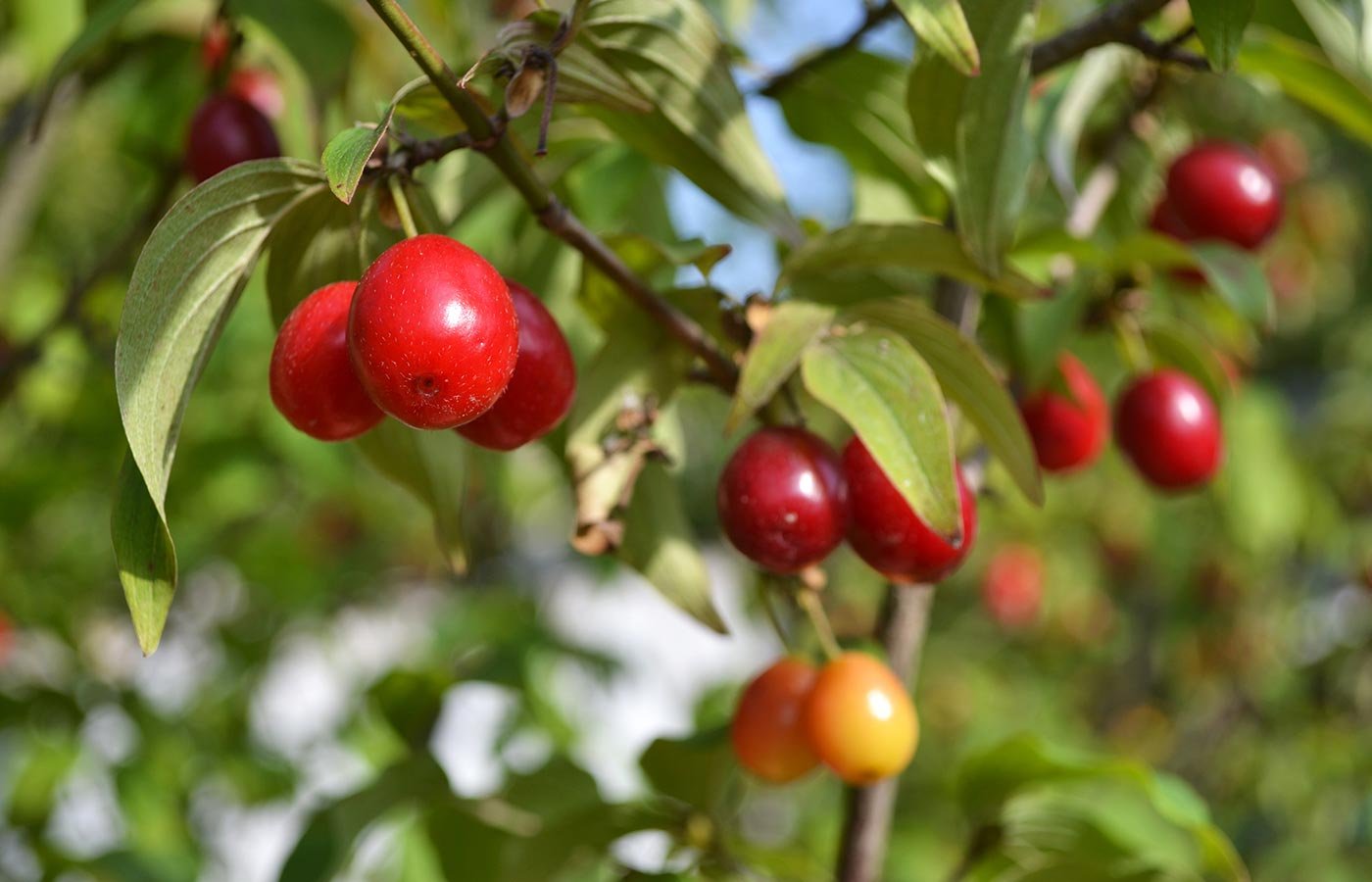Shan Zhu Yu (Coptis Fruit), the Ultimate Kidney and Liver Tonic
Shan Zhu Yu is the fruit of the Asiatic Dogwood tree. Sour and astringing, it belongs to the category of herbs that stabilize and bind. It is a powerful liver and kidney tonic, and can also support the reproductive system. Shan Zhu Yu is the principal herb in two extremely important formulas, detailed below.
Taste: Sour
Temperature: Slightly Warm
Meridians: Kidney and Liver
Function: Stabilizes the Kidneys and astringes Jing and Body Fluids/excess sweating; Supports any systems that have collapsed; Tonifies Liver and Kidney Yin and strengthens Kidney Yang; Stabilizes the menses and stops bleeding
Ba Wei Di Huang Wan
The name of this formula translates as Kidney Qi Pill from the Golden Cabinet. It was created by Zhang Zhongjing, a Chinese physician who wrote in the early 3rd century, who is often referred to as the Chinese Hippocrates. The Golden Cabinet is one of the earliest known texts providing the theoretical basis of Traditional Chinese Medicine.
This formula warms and tonifies Kidney Yang, and was originally indicated for patients who showed weakness, fatigue, and copious urine excreted soon after drinking water; in some cases, this may have been diabetes as we know it today. Since our life force, Qi, originates in the kidneys, this formula boosts our life force.
Other uses for this formula include supporting those with Prostate Cancer, when taken along with Saw Palmetto. It can support many individuals with health issues and diseases of aging.
Formula Composition (all raw herbs):
• Shu Di Huang, 10g
• Shan Zhu Yu, 10g
• Shan Yao, 10g
• Zhi Fu Zi, 10g (cooked for 20 mins)
• Gui Zhi, 6g
• Ze Xie, 10g
• Fu Ling, 10g
• Mu Dan Pi, 10g
Liu Wei Di Huang Wan
This formula was created by Qian Yi, a master pediatrician, who adapted Ba Wei Di Huang Wan. It is one of the most important Chinese patent medicines, and is widely used in eastern Asia. It is generally used to treat Yin Deficiency, as it enriches yin, and nourishes the liver and kidneys. It was published in "Xiao'er Yao Zheng Zhi Jue" in 1119 by Qian Yi's student.
Formula Composition (all raw herbs):
• Shu Di Huang, 10g
• Shan Zhu Yu, 10g
• Shan Yao, 10g
• Ze Xie, 10g
• Fu Ling, 10g
• Mu Dan Pi, 10g
Disclaimer: All above articles are for reference only. If patients are interested, please consult a professional practitioner Traditional Chinese Medicine for a consultation.



